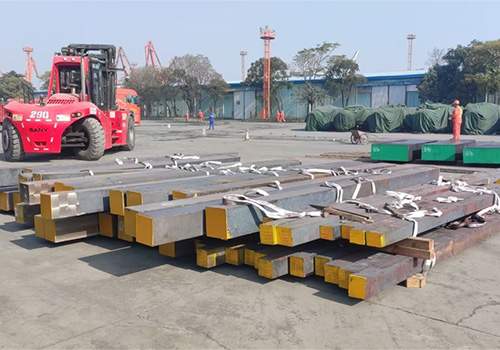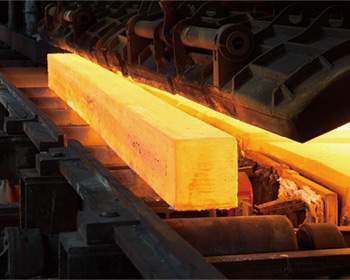
Top Applications of 1020 Low Carbon Steel in Manufacturing
Introduction
1020 Low Carbon Steel, known for its excellent formability and weldability, is a popular choice in the manufacturing industry. With a carbon content of around 0.2%, this steel grade offers a balance of strength and ductility that makes it suitable for a wide range of applications. This comprehensive guide will explore the top uses of 1020 low carbon steel and why it’s a preferred material in various manufacturing processes.
In the realm of manufacturing, materials play a crucial role in determining the success of a product. 1020 Low Carbon Steel, with its unique properties, has become a staple in many industries. This blog will delve into the characteristics of 1020 low carbon steel, its applications, and the reasons behind its widespread use.
Understanding 1020 Low Carbon Steel

To fully appreciate the applications of 1020 low carbon steel, it’s important to understand its composition and properties.
Composition and Properties of 1020 Low Carbon Steel
1020 Low Carbon Steel is an unalloyed steel with a low carbon content, which gives it good formability and weldability. The low carbon content also makes it more ductile and less hardenable by heat treatment compared to high carbon steels. This steel grade is known for its ability to undergo significant deformation before fracturing, which is why it’s often used in applications where the steel needs to absorb energy without breaking.
Manufacturing Process
The manufacturing process of 1020 low carbon steel involves the basic oxygen steelmaking (BOS) process, followed by hot rolling and cold rolling to achieve the desired dimensions and surface finish. This process ensures that the steel has a uniform structure and consistent mechanical properties.
Applications of 1020 Low Carbon Steel in Manufacturing
The versatility of 1020 low carbon steel makes it suitable for a wide range of applications in various industries.
Automotive Industry
In the automotive industry, 1020 low carbon steel is used for manufacturing car bodies, frames, and other structural components due to its balance of strength and ductility.
Construction
In construction, 1020 low carbon steel is used for rebar, beams, and other structural elements that require strength and durability while being cost-effective.
Agricultural Equipment
For agricultural equipment, 1020 low carbon steel is ideal for its resistance to wear and its ability to withstand the rigors of outdoor use.
Furniture and Appliance Manufacturing
In furniture and appliance manufacturing, 1020 low carbon steel is used for its ease of fabrication and ability to hold complex shapes.
Benefits of 1020 Low Carbon Steel in Manufacturing
The benefits of 1020 low carbon steel extend beyond its physical properties, offering advantages that contribute to the efficiency and effectiveness of manufacturing processes.
Formability
1020 low carbon steel is easy to bend and shape, making it ideal for manufacturing complex parts that require forming processes.
Weldability
The low carbon content of 1020 low carbon steel makes it highly weldable, which is essential for many assembly processes in manufacturing.
Machinability
This grade of steel is relatively easy to machine, which can lead to faster production times and lower costs for parts that require machining.
Surface Finish
The rough surface finish of hot rolled steel can be advantageous in applications where a better grip is needed, such as in the threads of bolts and screws.
A Comparative Analysis of 1020 Low Carbon Steel
To provide a clearer picture of why 1020 low carbon steel is chosen over other materials, here’s a comparative analysis of its properties:
1020 Low Carbon Steel Property Comparison Table
| Property | Description | Advantage |
|---|---|---|
| Tensile Strength | The ability of the steel to withstand stretching | 1020 low carbon steel has moderate tensile strength, suitable for many applications without the need for high-strength steels. |
| Yield Strength | The point at which steel begins to deform permanently | Offers a good balance of strength and ductility, making it versatile for a range of uses. |
| Hardness | Resistance to surface indentation or abrasion | Its low hardness makes it easy to machine and form. |
| Weldability | Ability to join pieces of metal together by heating | The low carbon content makes 1020 low carbon steel highly weldable, which is beneficial for assembly processes. |
| Machinability | Ease of cutting and shaping the steel | 1020 low carbon steel’s low carbon content contributes to its good machinability, reducing production time and costs. |
This table provides a snapshot of how 1020 low carbon steel compares to other materials in terms of key properties that are often considered in material selection for manufacturing.
Making the Right Material Choice

When selecting 1020 low carbon steel for your manufacturing project, consider the specific requirements and constraints.
Project Requirements
Consider the specific requirements of your project, such as the type of loads the steel will need to support, the available space, and the desired aesthetics.
Budget Constraints
1020 low carbon steel offers a cost-effective solution for many applications due to its balance of properties and relatively low cost.
Long-Term Performance
Think about the long-term performance of the steel, including its resistance to corrosion, its maintenance requirements, and its expected service life.
Sustainability
Consider the environmental impact of the steel production process and the overall sustainability of your project.
Conclusion
1020 Low Carbon Steel offers a range of benefits that make it a popular choice in the manufacturing industry. Its formability, weldability, machinability, and cost-effectiveness position it as a versatile material for many applications. By understanding the properties and applications of 1020 low carbon steel, manufacturers can make informed decisions that will enhance the efficiency, safety, and sustainability of their projects. Whether for structural components, mechanical parts, or decorative elements, 1020 low carbon steel provides a reliable and economical solution.
FAQ
Q: What are the main benefits of using 1020 low carbon steel in manufacturing?
A: The main benefits include its formability, weldability, machinability, and cost-effectiveness, which make it suitable for a wide range of applications. Its balance of strength and ductility also makes it an excellent choice for applications requiring moderate strength and the ability to absorb impact without fracturing.
Q: How does 1020 low carbon steel compare to other grades of steel in terms of strength?
A: 1020 low carbon steel has moderate strength and is less hardenable than high carbon steels, making it more suitable for applications where high ductility is required rather than extreme strength. It is often chosen for its balance of properties rather than for applications requiring the highest levels of strength.
Q: Can 1020 low carbon steel be used in outdoor applications where corrosion resistance is important?
A: While 1020 low carbon steel does not have inherent corrosion resistance, it can be coated or treated to provide protection against rust, making it suitable for outdoor use. Common treatments include galvanizing, painting, or applying other protective coatings to extend its service life in corrosive environments.
Q: Is 1020 low carbon steel difficult to machine?
A: No, 1020 low carbon steel is relatively easy to machine due to its low carbon content, which contributes to its good machinability. This property allows for faster production times and lower costs for parts that require machining, making it a popular choice for manufacturers looking to optimize their production processes.
Q: What are the typical applications of 1020 low carbon steel in the automotive industry?
A: In the automotive industry, 1020 low carbon steel is used for manufacturing car frames, wheels, and other structural components where a balance of strength and ductility is required. It is also used in the production of suspension components, body panels, and other parts that need to withstand stress without breaking.






